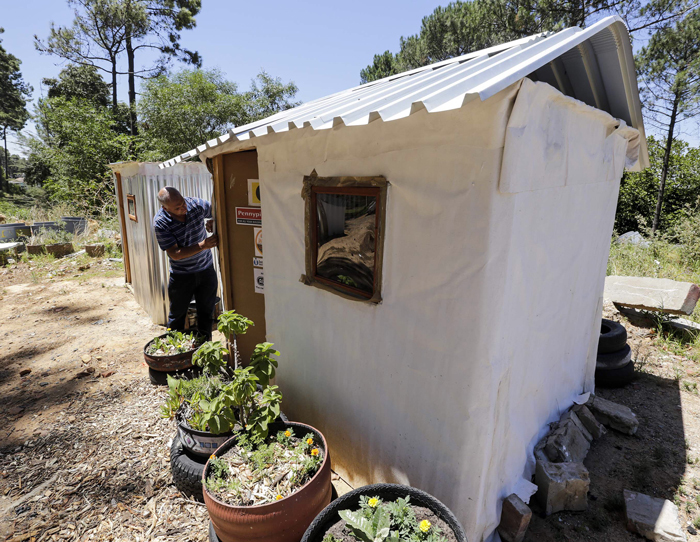Shacks on the cool track
13 February 2015 | Story by Newsroom
Shacks have sprung up on the upper campus of UCT. They are not part of a burgeoning informal settlement, but are there to test an innovation that helps shacks stay cool in summer.
Thanks to little more than recycled plastic bottles and wet charcoal, the temperature in one shack is 10 degrees celsius lower than in the one next door, and 3 degrees celsius lower than outside. Cape Town business owner Mark Algra partnered with UCT to develop methods of reducing temperatures in shacks during summer and retaining heat during winter, for less than R1 000.
By cladding the outside of the corrugated steel experimental shack with white-painted PET cloth made from old cooldrink bottles, the temperature inside was drastically reduced.
Algra says the synthetic fibre also has UV-resistant properties, and could be used as a tarpaulin or shade cover.
"The white paint reflects UV rays, and the PET cloth acts as another barrier to heat," he says.
The Cool Shack Project came about after Algra was inspired by the World Design Capital, hosted in Cape Town last year, to design something to improve people's lives.
He approached Dr Kevin Winter from UCT's Environmental and Geographical Science Department to help develop the idea. "People lock their shacks and go to work; and in summer, the shacks become baking ovens," says Winter.
The experimental shack also has water-soaked charcoal in pockets on the inner walls. As the water evaporates, the air cools, helped by a ventilation system that draws out warm air through a dome covering a hole cut in the roof.
The City of Cape Town reports that about 140 000 households in its area are shacks, so such an innovation would have a large impact.
Winter says a pilot project is being planned with the Shack Dwellers International NGO.
"We need to have real-life application before we can take it to the public," he says.
Story by Farren Collins, and first published on Times Live.
 This work is licensed under a Creative Commons Attribution-NoDerivatives 4.0 International License.
This work is licensed under a Creative Commons Attribution-NoDerivatives 4.0 International License.
Please view the republishing articles page for more information.










